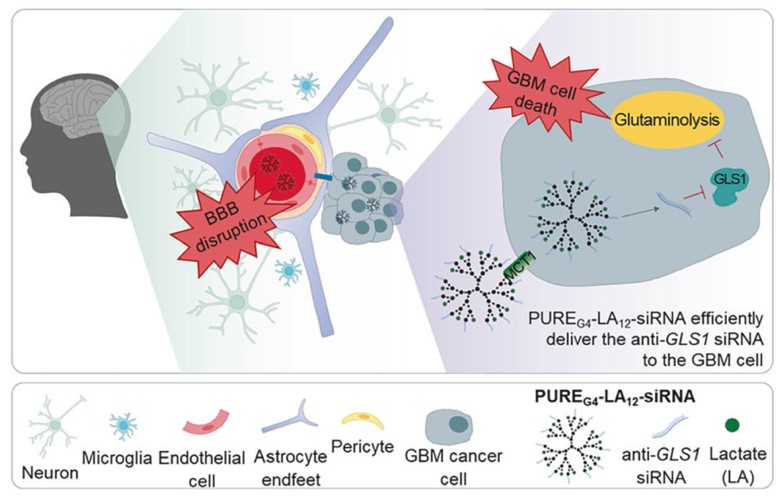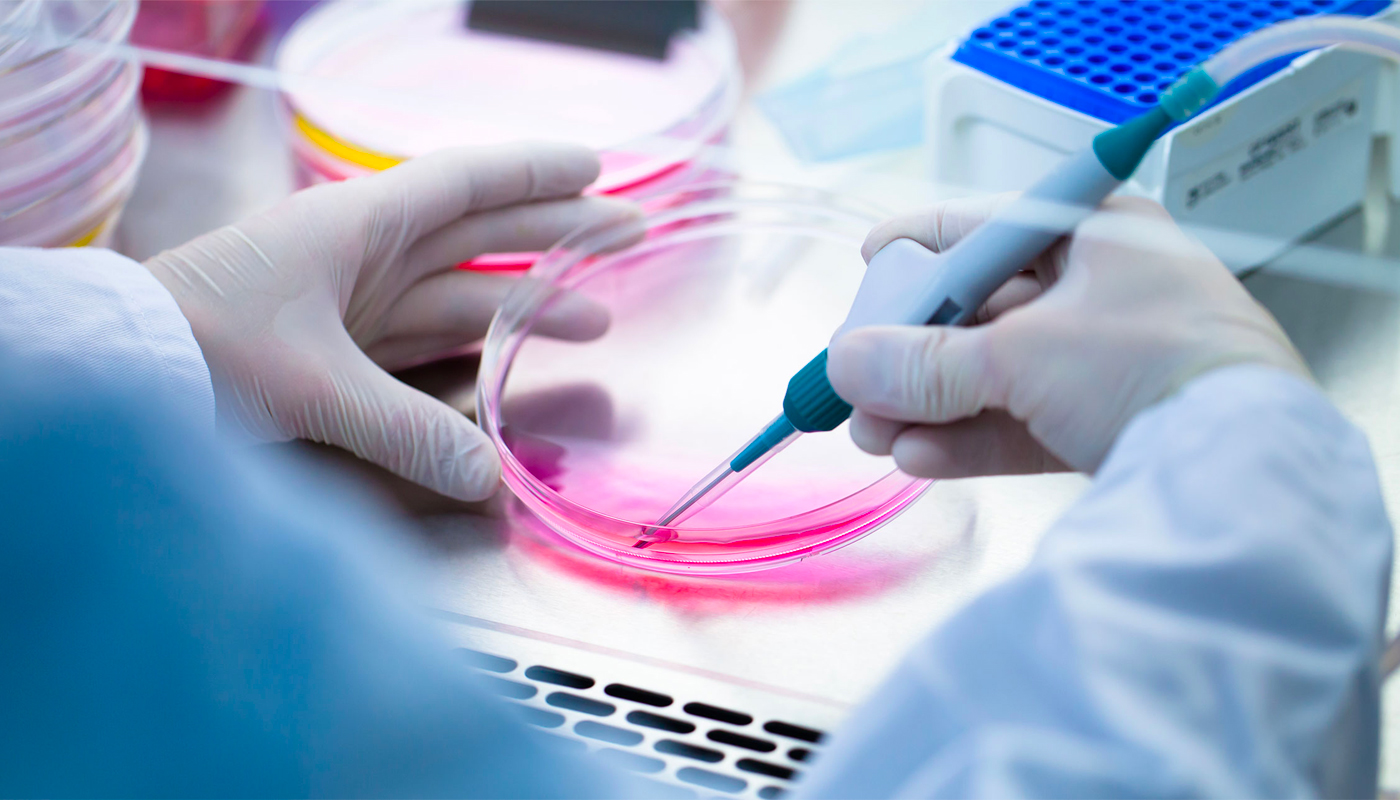Metabolism meets gene therapy: Lactate-tagged dendrimers against glioblastoma

Prof. Vasco Bonifácio (DBE, iBB) and collaborators from NOVA Medical School and ITQB – NOVA University of Lisbon, Sciences Faculty – Lisbon University, Instituto Português de Oncologia de Lisboa, Instituto Nacional de Saúde Doutor Ricardo Jorge, Instituto de Salud Carlos III, and Facultad de Medicina, Universidad de Castilla-La Mancha, reported in Cancer Gene Therapy an innovative dual approach combining gene therapy and metabolic targeting against glioblastoma (GBM). They engineered a generation-4 polyurea dendrimer (PUREG4) surface-functionalised with lactate (PUREG4-LA24) to exploit the upregulated glucose-dependent monocarboxylate transporters (MCTs) for blood–brain barrier (BBB) penetration. These nanosystems were loaded with the cytotoxic agent selenium-chrysin (SeChry) or temozolomide (TMZ), and complexed with anti-glutaminase (GLS1) siRNAs to disrupt GBM’s glutamine dependence. In GBM cell lines—particularly U251 with high MCT1 levels—both SeChry@PUREG4-LA24 and TMZ@PUREG4-LA induced pronounced cell death, while PUREG4-LA12–anti-GLS1-siRNA effectively knocked down GLS1 expression. In two in vitro BBB models, the dendriplexes crossed the barrier, reduced GLS1 levels, altered the cellular exometabolome, and triggered autophagy pathways. These findings underscore the promise of lactate-coated dendrimer nanocarriers to breach the BBB and concurrently target glycolysis and glutaminolysis in GBM, paving the way for next-generation, metabolism-based therapeutic interventions. See more.
